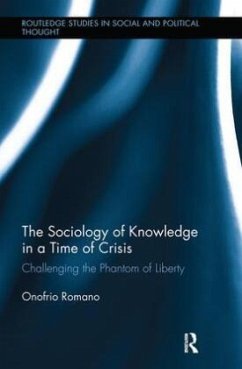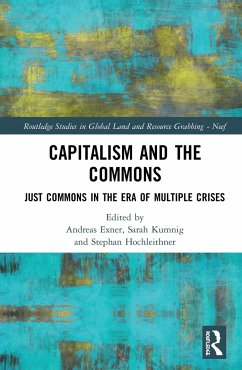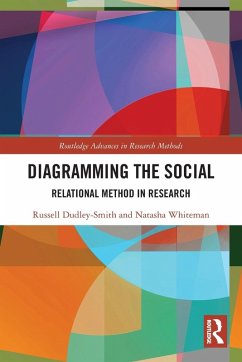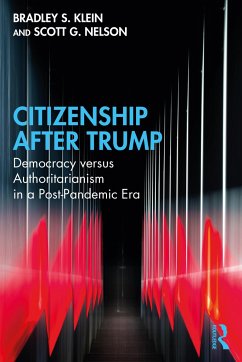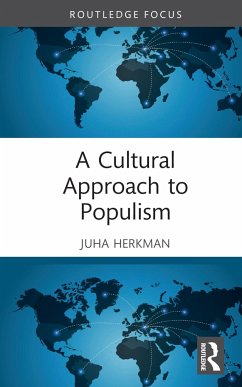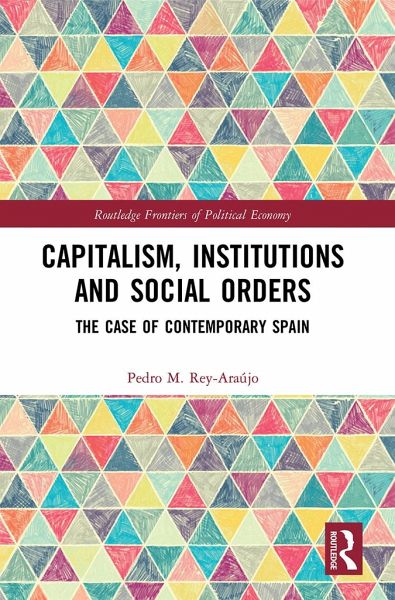
Capitalism, Institutions and Social Orders
The Case of Contemporary Spain
Versandkostenfrei!
Versandfertig in 6-10 Tagen
53,99 €
inkl. MwSt.
Weitere Ausgaben:

PAYBACK Punkte
27 °P sammeln!
Capitalism, Institutions and Social Orders develops a novel political economy approach by establishing a dialogue between the Social Structures of Accumulation (SSA) theory and Ernesto Laclau's post-Marxism theory. Using this synthesis, it provides an in-depth analysis of Spain's recent socio-economic evolution since the early 1990s.The book develops a theoretical framework capable of appraising capitalist dynamics together with their relationship to the institutional environment surrounding and structuring them. This is in order to explore the interrelation between the historical development ...
Capitalism, Institutions and Social Orders develops a novel political economy approach by establishing a dialogue between the Social Structures of Accumulation (SSA) theory and Ernesto Laclau's post-Marxism theory. Using this synthesis, it provides an in-depth analysis of Spain's recent socio-economic evolution since the early 1990s.
The book develops a theoretical framework capable of appraising capitalist dynamics together with their relationship to the institutional environment surrounding and structuring them. This is in order to explore the interrelation between the historical development of the capitalist mode of production, on the one hand, and the various co-existing social processes, social consensuses and political identities, on the other. Contemporary Spain provides an interesting case study: until the onset of the Great Recession, Spain had an impressive macroeconomic record supported by several contradictory social processes, such as a massive real estate bubble, an upsurge in private indebtedness and a deteriorating manufacturing sector. However, the accumulation of internal imbalances during those years led inevitably to the sudden disintegration of this institutional and social environment in the years after 2008, thus resulting into a breakdown of capitalist activity accompanied by widespread social contestation. The book also explores the ensuing political scenario, including the emergence of the 'indignados' movement and the anti-austerity party Podemos.
This work is of significant interest to critical political economy and discourse-theory scholars, critical theorists in general, and social scientists concerned with the recent Spanish experience.
The book develops a theoretical framework capable of appraising capitalist dynamics together with their relationship to the institutional environment surrounding and structuring them. This is in order to explore the interrelation between the historical development of the capitalist mode of production, on the one hand, and the various co-existing social processes, social consensuses and political identities, on the other. Contemporary Spain provides an interesting case study: until the onset of the Great Recession, Spain had an impressive macroeconomic record supported by several contradictory social processes, such as a massive real estate bubble, an upsurge in private indebtedness and a deteriorating manufacturing sector. However, the accumulation of internal imbalances during those years led inevitably to the sudden disintegration of this institutional and social environment in the years after 2008, thus resulting into a breakdown of capitalist activity accompanied by widespread social contestation. The book also explores the ensuing political scenario, including the emergence of the 'indignados' movement and the anti-austerity party Podemos.
This work is of significant interest to critical political economy and discourse-theory scholars, critical theorists in general, and social scientists concerned with the recent Spanish experience.




